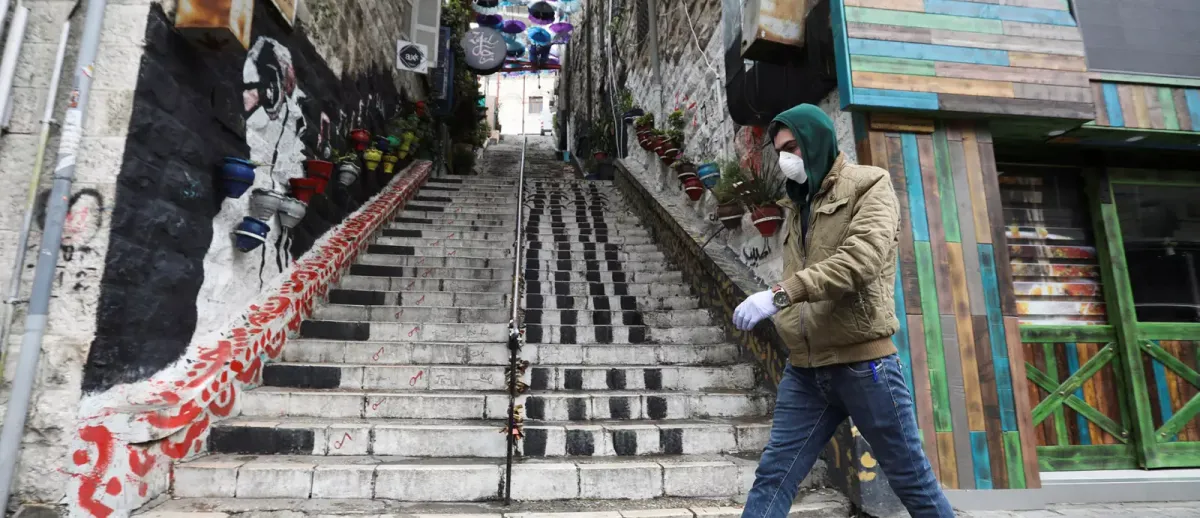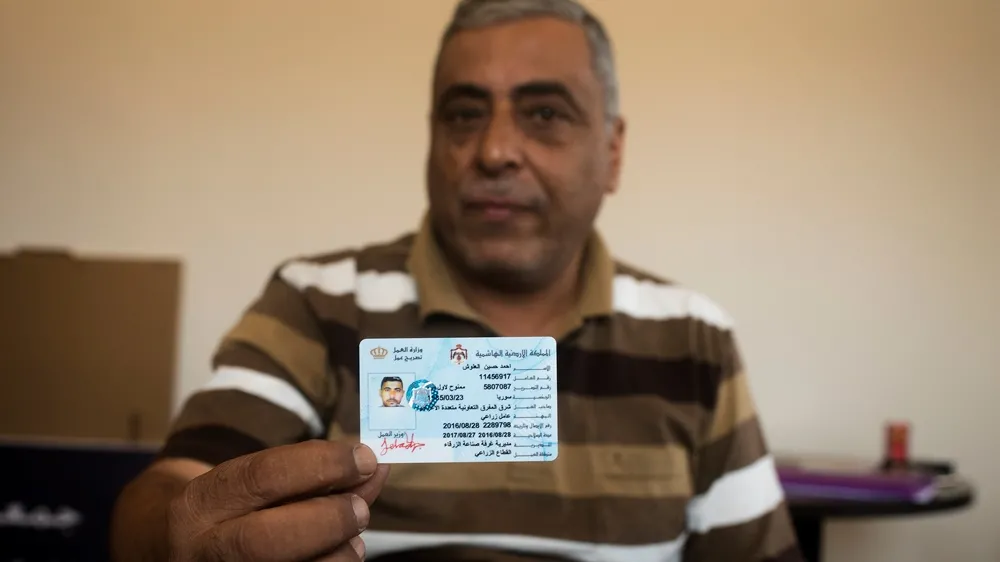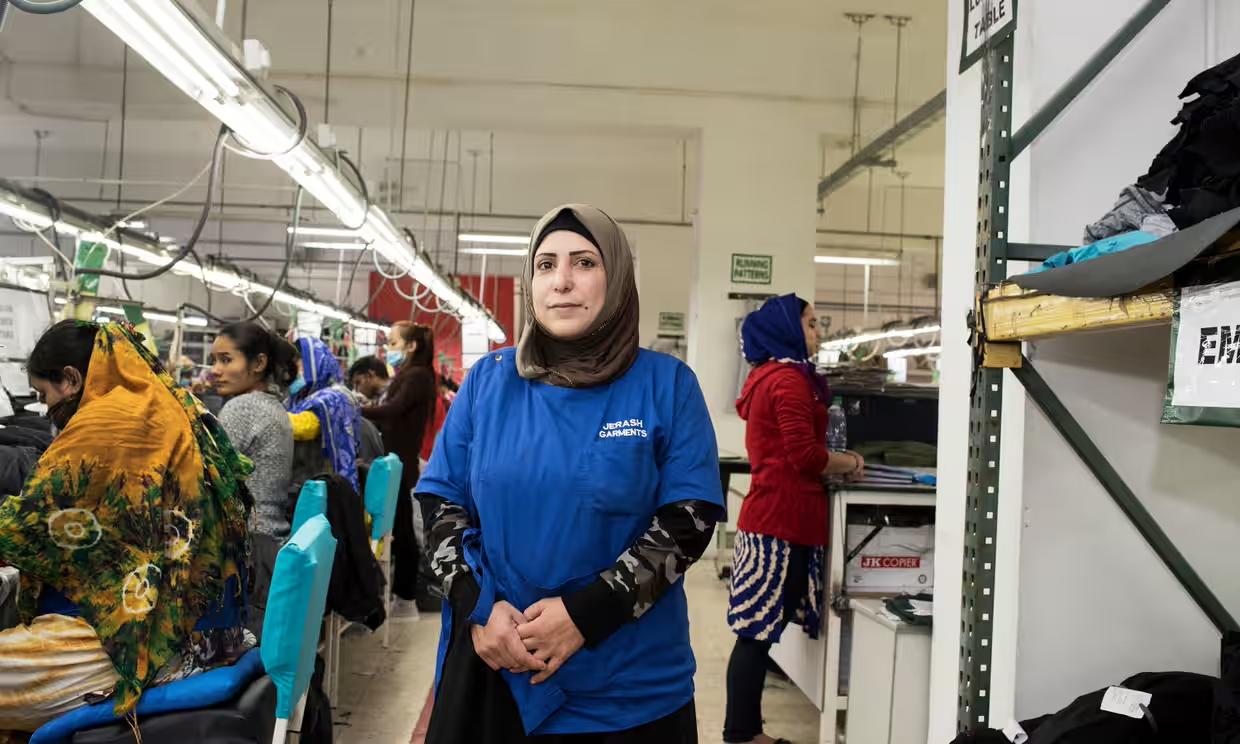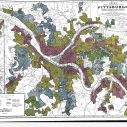The Jordan Compact at a Crossroads
archive


An individual strolling through Amman, Jordan, home to the majority of the country's nearly one million displaced individuals. [Image Credit: Muhammad Hamed/Reuters]
The Jordan Compact at a Crossroads
Jordan has emerged as a key ally of Europe in one of the world’s most geopolitically unstable regions. The Syrian refugee crisis, which began in 2011, has displaced over 6.8 million Syrians, with Jordan hosting over 1.3 million refugees, placing immense strain on the country's resources and infrastructure (Karasapan, 2022). At the center of this strategic international diplomacy with Europe lies the Jordan Compact, a mutually beneficial agreement reached in 2016 between the government of Jordan and the European Union. The Compact brokered job opportunities for Syrian refugees in exchange for foreign aid and trade benefits and helped Europe prevent further refugee influx. But six years later, as geopolitical priorities shift, the Compact's legacy is complex. Reevaluating the Compact now underscores the need for more inclusive, refugee-centered solutions that go beyond border externalization policies and prioritize dignity and empowerment.
Amidst fears of terrorism, rising alt-right nationalism and authoritarianism in Europe, and pressures from the then newly formed Trump administration, various interests converged favorably and quickly to ink the deal. The Compact showed that by leveraging existing political capital between donor governments, international organizations, and host states, together with economic and political incentives such as trade deals; a restrictive policy environment can be opened up to mobilize funds quickly. The Center for Global Development maintains the Compact’s significance as a model for handling protracted refugee situations. In this instance, the EU's stated goals of promoting good governance, human rights, and sustainable development align closely with King Abdullah’s aspirations for the Jordanian state.

Jordanian farm owner holds up a work permit that he processed through the Ministry of Labour for one of his Syrian workers. [Image Credit: Alisa Reznick/Al Jazeera]
At the time the agreement was drafted, hundreds of thousands of Syrians were undertaking perilous journeys on foot to reach Europe. Many others drowned, cramming into flimsy, overcrowded boats that sank in the Mediterranean as the governments of Greece and Italy struggled to manage the influx of migrants. Rising nationalist sentiment in Europe– amplified in particular by Germany's AfD party–pressured Merkel's government to restrict immigration. Meanwhile, the newly instated Trump administration in the U.S. claimed unfounded links between Syrian migration and terrorism, adding further strain to curb refugee flows.
Seeking to eliminate push factors for refugees to migrate into its member states, the European Union attempted to contain Syrian refugees in the Middle East. Europe aimed to restrict migration into its territories while using its leverage to exert influence in the region. European Leaders lobbied Jordan to implement improved policies, reducing refugees' incentive to migrate further. Europe bargained access to billions in aid and fundamentally reshaped the region's political geography to secure their imagined borders.
For Jordan, however, this symbiotic relationship is not merely transactional; it's a strategic imperative. Host countries have historically faced challenges in providing sufficient infrastructure, support, and vital services to a burgeoning refugee population. The ongoing Syrian Civil War has forced millions of Syrians to flee their homes and seek refuge in neighboring Jordan, Lebanon, and Turkey. By aligning with Brussels, Jordan has managed an influx of refugees, providing essential services, education, and employment opportunities while also balancing the strain on its own limited resources and stagnant economy. Jordan has effectively leveraged its position as a harborer of refugees to receive significant economic support from international institutions. The 2016 Jordan Compact underscores its commitment to humanitarian principles and showcases an ability to navigate diplomacy effectively.

Syrian refugees working in Jordan's textile industry. [Image Credit: Atlantic Council]
The Jordan Compact, which established the work permit system, is arguably one of the most significant pieces of refugee-related policy of the last decades. The labor market policy response in Jordan up until then widely attempted to limit refugee access to stable employment in an attempt to protect the native population. Prior to the agreement and international intervention, most Syrian refugees worked in the informal economy, in sectors such as agriculture, construction, and production. Approximately 40 percent of Jordan's GDP can be attributed to informal labor, where workers are often much more vulnerable to abuses, low wages, and exploitation (IMF, 2023).
Before 2016, obtaining a work permit for Syrian refugees in Jordan was challenging due to strict requirements, including a valid passport, a $700 fee, proof of address, a medical exam, and employer sponsorship (UN Refugee Agency). The Compact simplified the process, easing legal barriers and documentation requirements. Work permits are issued and managed jointly by Jordan’s Ministry of Labor (MOL), the United Nations High Commissioner for Refugees (UNHCR), and the International Labour Organisation (ILO), (UNHCR, 2022). In 2020, the ILO and MOL established cooperatives known as 'Agriculture Guidance and Employment Units.' They developed this partnership to deliver agricultural work permits directly through cooperatives in Jordan, easing the process and giving workers and employers further incentive to apply. Because of such initiatives, refugees don't need an individual employer to vouch for them and can pre-apply for a broad, sector-wide work permit which then allows them to choose their employer. Easing the process empowers refugees with more opportunities, mobility, and freedom. The program also provides career guidance and job placement services to Syrian refugees working in the agriculture sector. As a result of these efforts, around 71,000 work permits had been issued to Syrian refugees across all sectors by October 2017, a substantial increase from the 3,000 permits issued annually prior to the Compact. An estimated 13% of the Syrian working-age population now has a work permit.
Considerable challenges remain, however. Critics and policymakers remain concerned about the process and implementation. For one, the Compact's design initially overlooked the inclusion of refugee perspectives. Many refugees have been excluded or have found it difficult to access permits, with a sluggish response in addressing and improving everyday experiences and living conditions. One of the greatest challenges is that these policies have not been extended to Palestinian refugees who have lived in Jordan for decades. Internal discussions have long raised the possibility of extending work permit access to Palestinian refugees, but this progress is even more uncertain with the recent Hamas-Israel conflict. Others contend that the Compact may have originated partly from the strong lobbying efforts of wealthy Jordanian business people, particularly in the textile manufacturing industry–seeking inexpensive labor from refugees. And with Syria’s reentrance into the Arab League and other geopolitical developments in the region, international institutions are reevaluating partnerships with Jordan. Sources at the World Bank have indicated a waning appetite for the continued financial support of Syrian refugees in Jordan, wary of fueling a protracted refugee situation akin to that of the Palestinians. The consensus among the international community is that Syrian refugees should begin to return home.
This article was produced through an undergraduate research fellowship generously supported by the Orfalea Center for Global & International Studies under the mentorship of Instructor Omar Mansour.
Omer Karasapan, “Syrian Refugees in Jordan: A Decade and Counting,” Brookings, January 27, 2022, https://www.brookings.edu/articles/syrian-refugees-in-jordan-a-decade-and-counting/.
International Monetary Fund. Jordan Data Map. 2023. https://www.imf.org/external/datamapper/profile/JOR
“Work Permits for Syrian Refugees in Jordan” (UNHCR Jordan, n.d.), https://help.unhcr.org/jordan/en/frequently-asked-questions-unhcr/work-permit-syrian-faqs/.
Jordan Issues Record Number of Work Permits to Syrian Refugees” (UNHCR, January 25, 2022), https://www.unhcr.org/us/news/news-releases/jordan-issues-record-number-work-permits-syrian-refugees.



